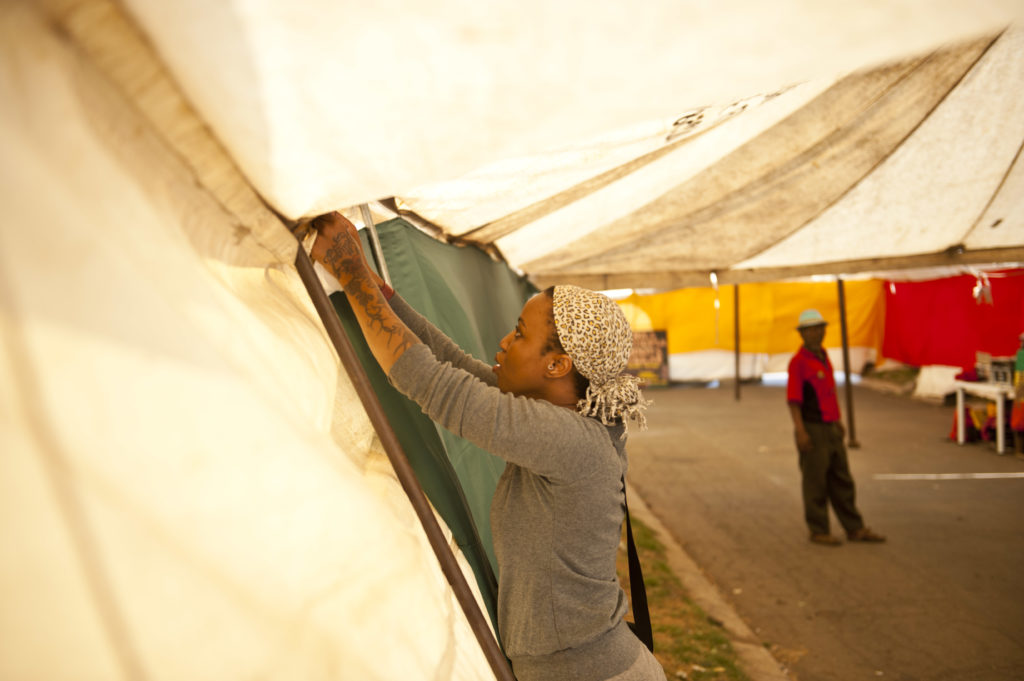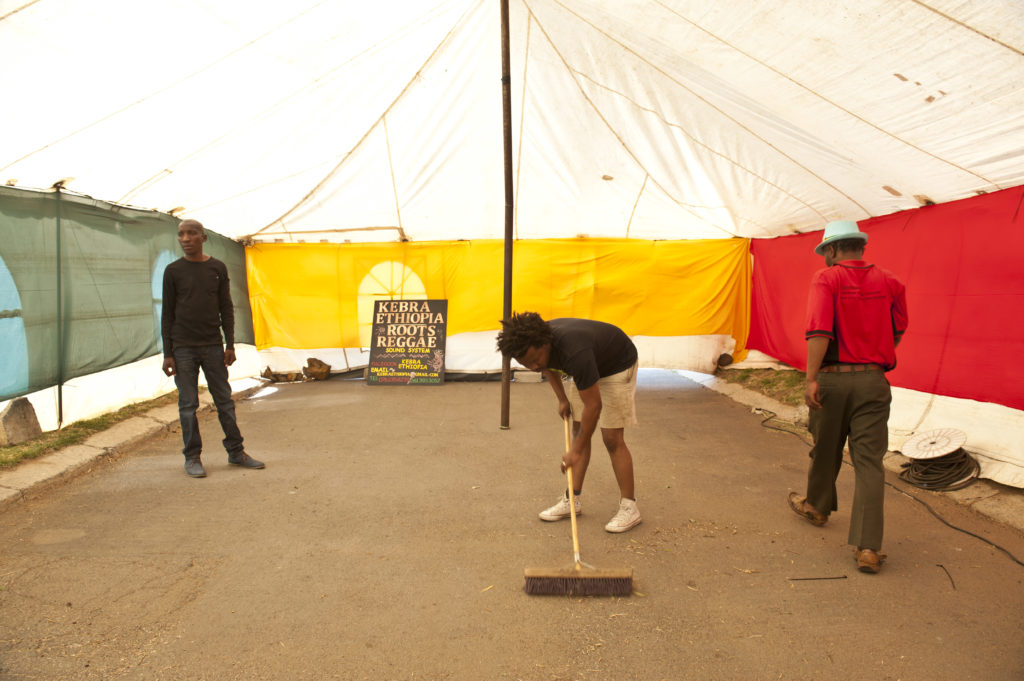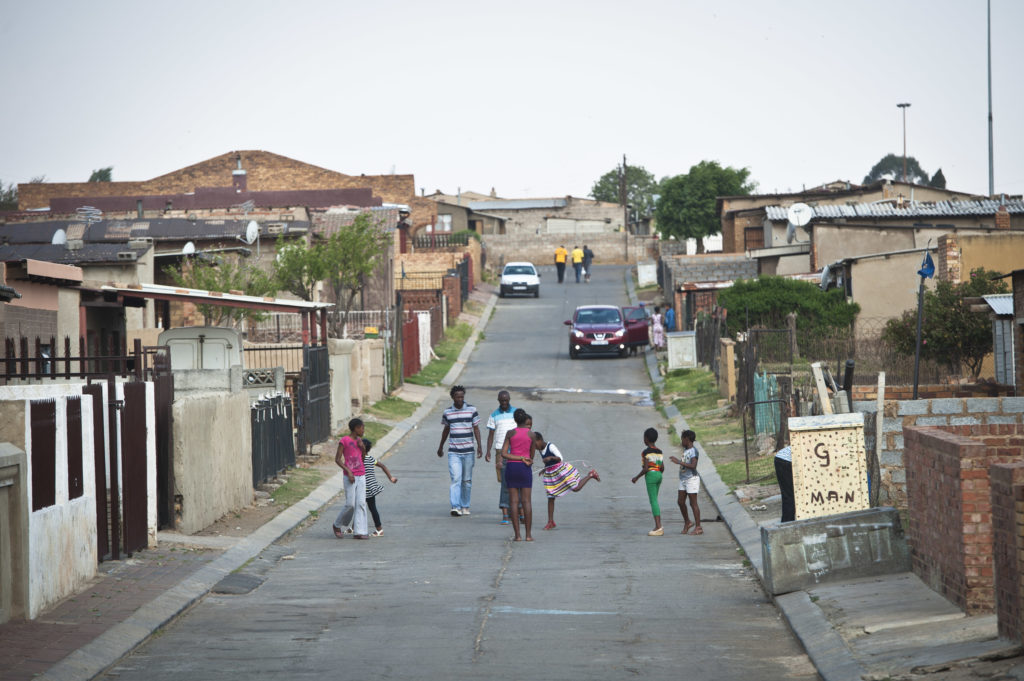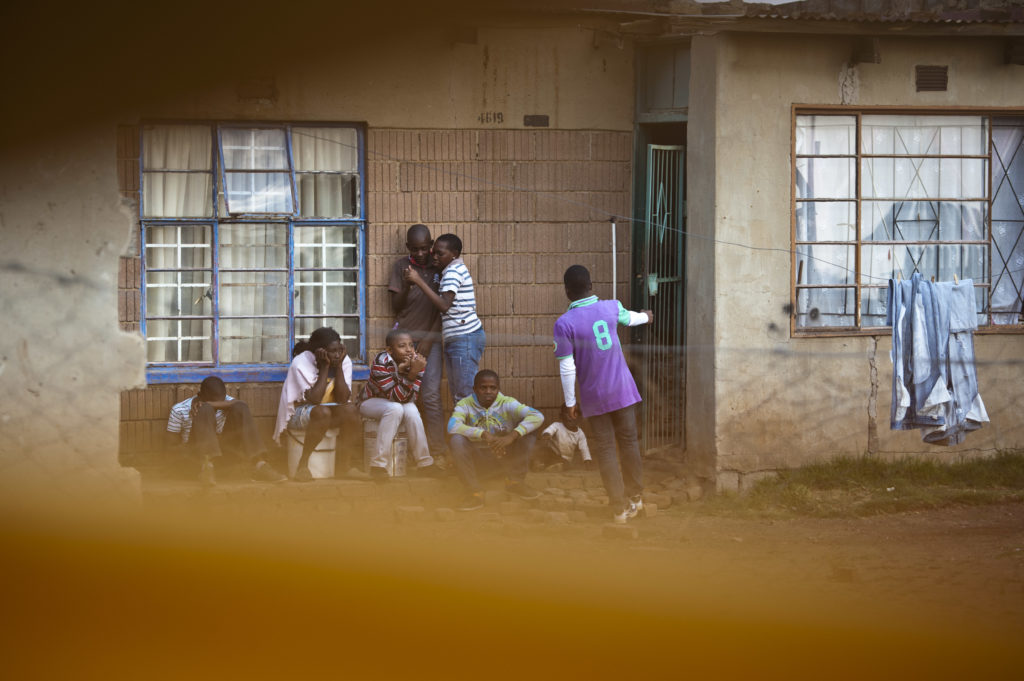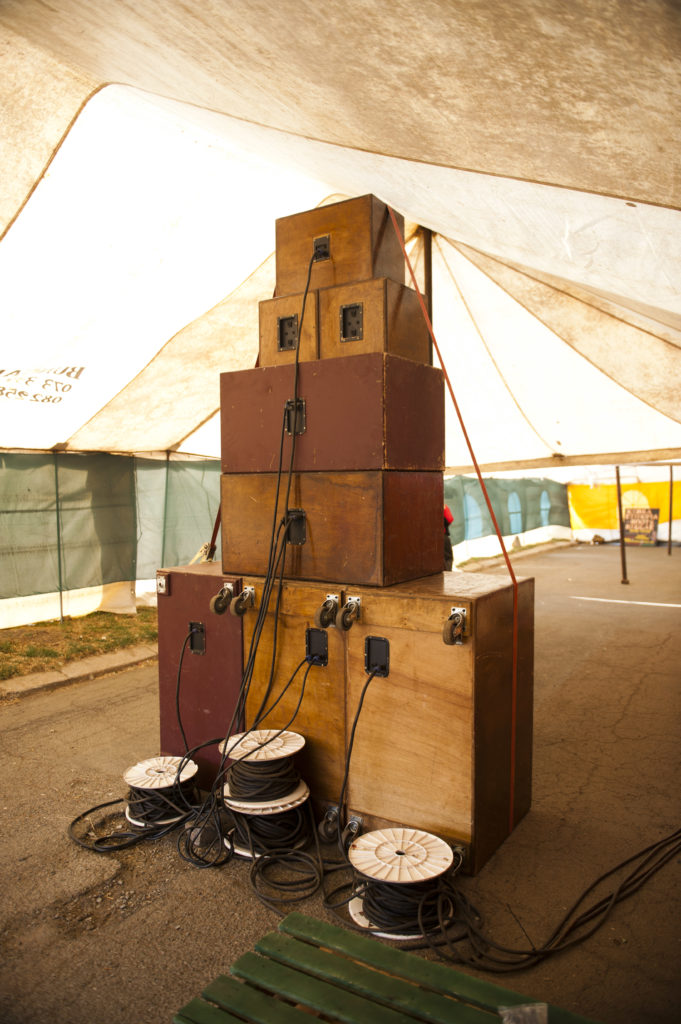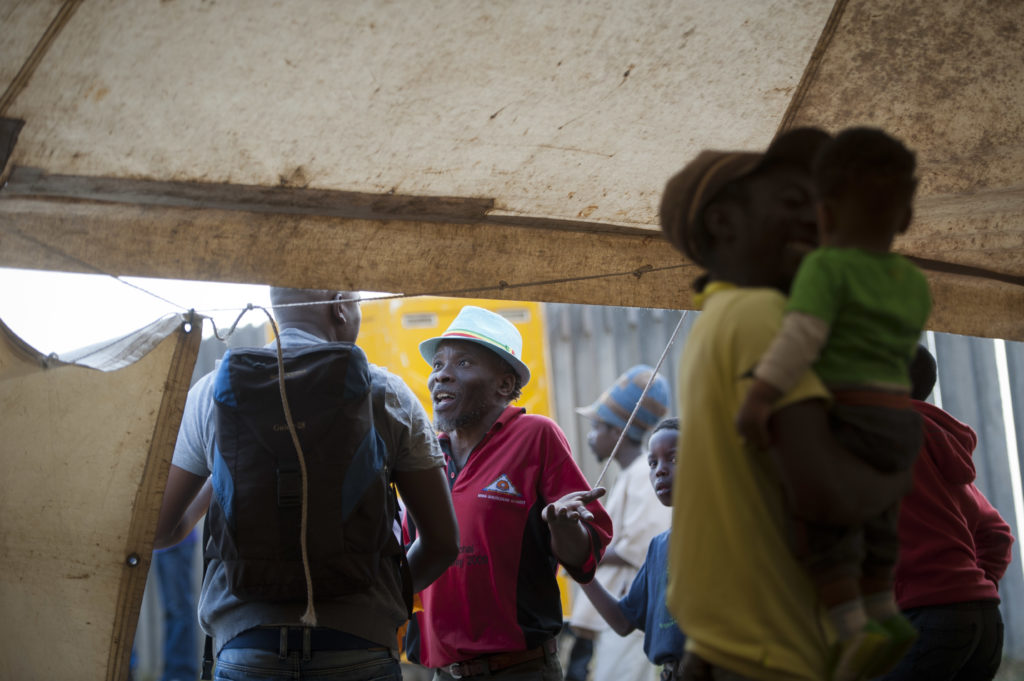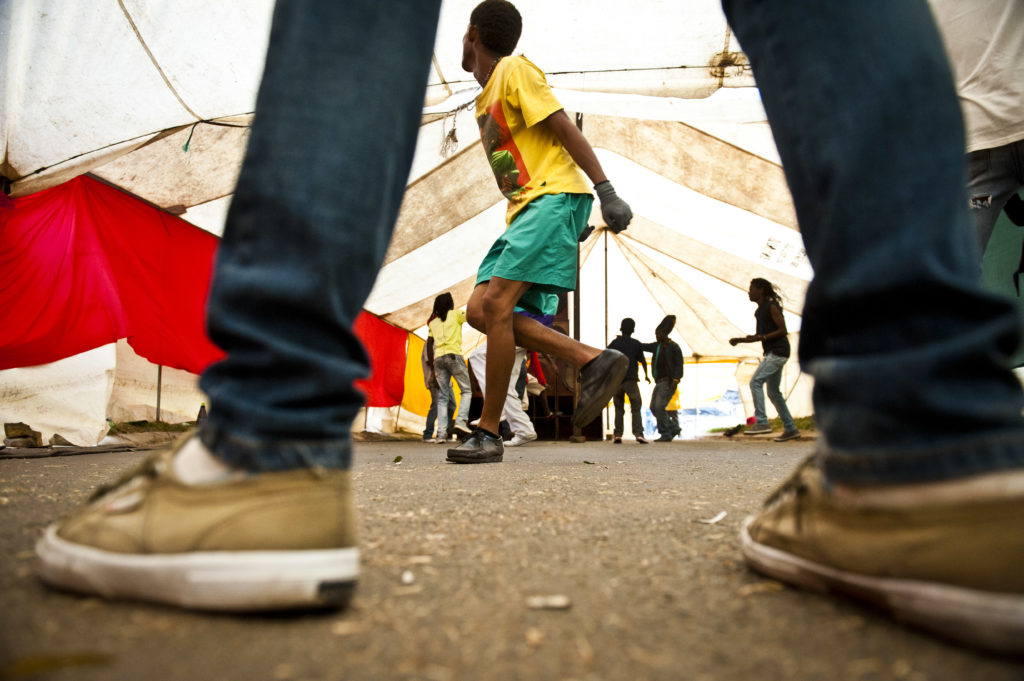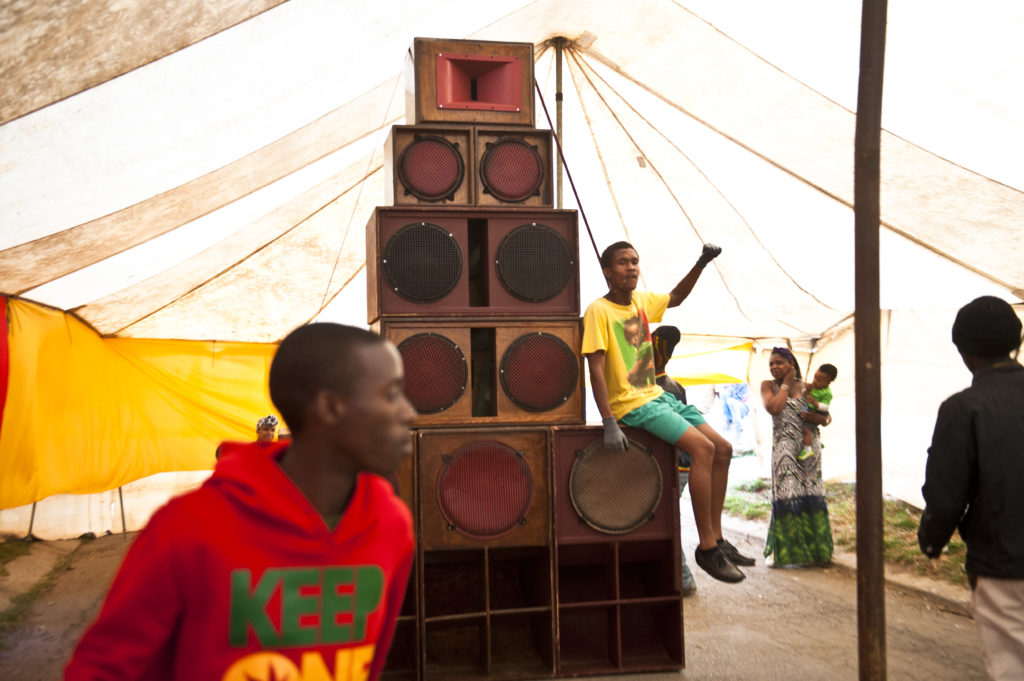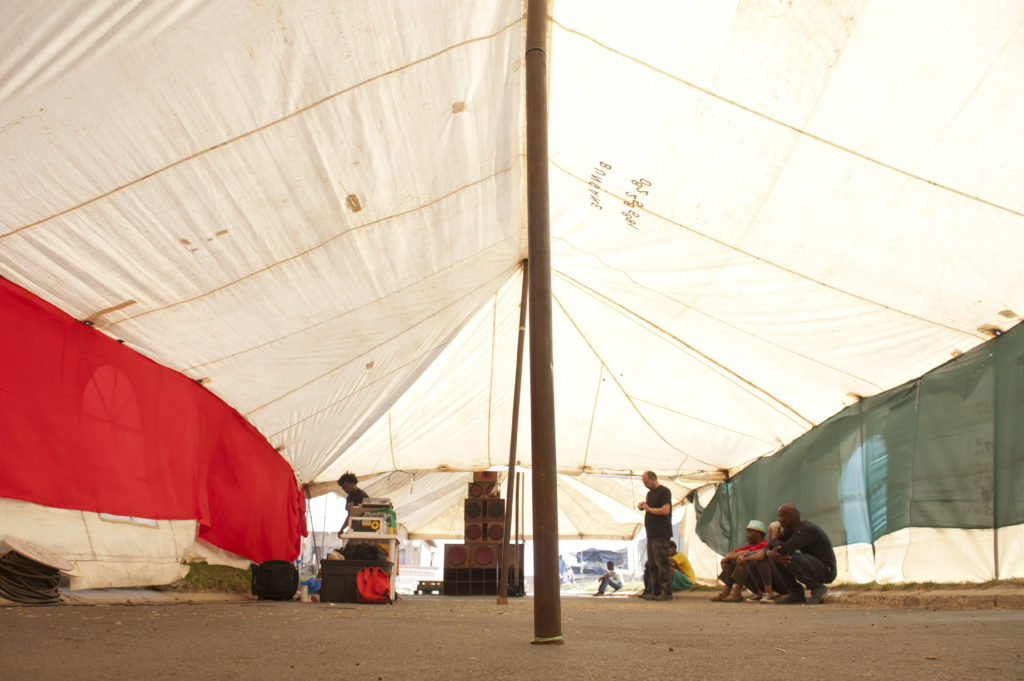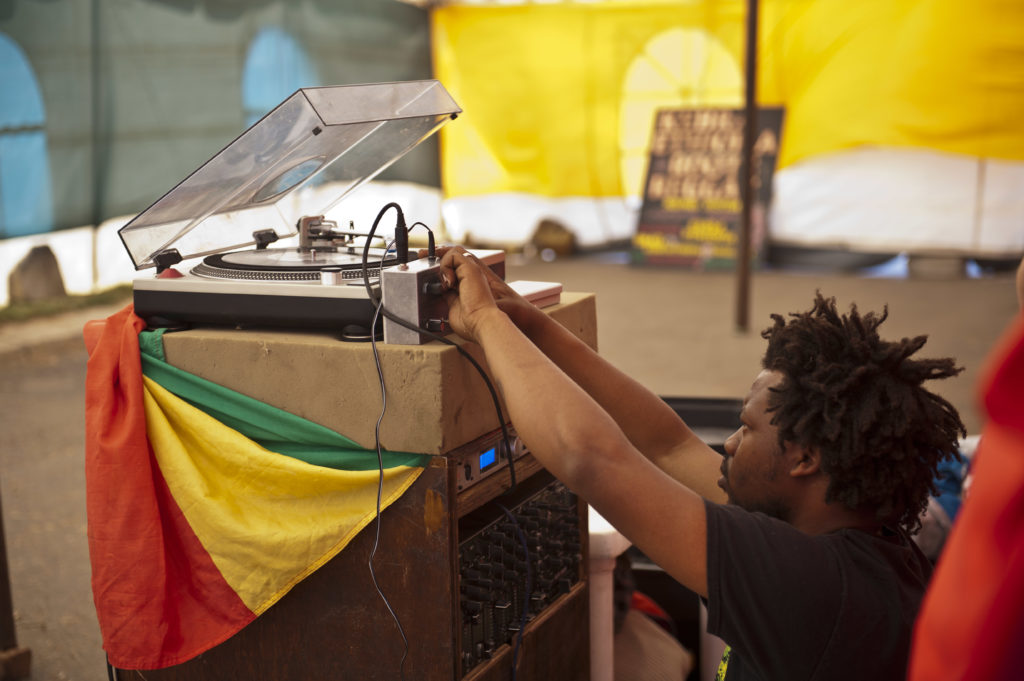Townships Sounds: The Struggle for Survival
South Africa has an impressive reggae sound system scene, with an history spanning over four decades. Most interesting, this scene little-known even in South Africa has developed without any direct influence from Jamaica or the UK. It has always been more-or-less self-sufficient, making it an extremely rich field of research for the SST project. We met Kebra Ethiopia, one of the country’s leading sound systems, during our online event SSO#7 last year, where selector and operator Doc Inity made a very relevant contribution. Building our ongoing working relationship, we invited them to do a blog addressing the way they develop their sonic practice in the local context. To our surprise, they chose to describe a specific session held back in 2014. On this occasion, the challenges of making sound system a sustainable enterprise in the context of a deprived economy while keeping it accessible to the entire community became very clear. SST is glad to welcome guest blogger Ethel Laka of Kebra Ethiopia sound system.
By Ethel Laka
Photographer: Delwyn Verasamy
—
Kebra Ethiopia (glory to Africa) sound system plays reggae music that concerns socio-economic issues, ghetto living, equality, Rastafari livity, and pan-African teachings in community parks or township streets of Johannesburg. We hold these monthly events as a form of ‘community self-care. And the music serves as a social commentary. We deeply appreciate how these gatherings further expand diversity in a cohesive space that is safe for all ages.
On a sunny Sunday the 24th September 2014, we had an unusualness with our session in that a tent was mounted on the street to delegate the space where we should all congregate to generate collective positive energy and collect an entrance fee.
The usual was the electrical supply requested from the nearest homestead closest to the sound power sockets. The street was swept up and we proudly mounted the colors of red, which was symbolic of the blood of those who were killed for the course, green for vegetation and land, and Gold which symbolizes wealth.
This was the first event that we put together as an attempt to economize our gatherings. We wanted to start creating spaces that enhance shared prosperity and inclusive growth. We had read of the teachings of Mr. Marcus Mosiah Garvey who proclaimed that ‘without commerce and industry, a people perish economically. I and Doc Inity wanted to gather a framework to understand township economies and try to offer a practical toolkit to help devise more effective place-based strategies. In hindsight: we underestimated how complex an environment the township is for economic development because of the social strains and competition for scarce resources.
To begin with, the township was never originally conceived of, or designed as a place of potential or possible revitalization. The historical roots of space and location account for the primary challenges we faced in township economic development and are the primary source of every conceivable obstacle faced in the vitalization of our township economy.
Obstacles such as electrical blackouts. When possible, we hired a generator to mitigate this, as blackouts would happen at any given moment, daily. Enclosures to mitigate weather, shipment of records takes forever or never, as the postal services at townships are not efficient and under-resourced, the availability of sound equipment as one must import most of the good quality equipment. All this compounds the costs of running a sound system.
Our homesteads are underdeveloped and under-serviced. Where infrastructure amenities and services do become available; the cost at which they do prices them at a point that renders them unaffordable to the average dweller and their businesses due to the lower average income level and business turnover in the township. For instant access to the internet to stream, a live session of the gathering is another challenge. Knowing this: we insisted that we needed to encourage ourselves in bold thinking, experimentation, and innovation.
We thought about how formalizing this setup will produce monetary gains for all involved as this is a collective. The boxman, paying for the electrical supply to the family home, transportation, tent, and other miscellaneous costs and would give rise to market inductive spaces and the community members can benefit by trading in these spaces.
Our afterthought is that this was an interrogation of the fundamental thinking of the masses on how ‘free’ reggae music should be when in fact: sound system setups take an enormous effort with extraordinarily high input costs. We had a confrontation with our cause, the courageous third degree.
A 12000 watt sound system on-street is by no means an exclusive offering. It is an intentional invitation of the whole community. The bass drums, One drop Snares and kicks, the lyrical content, and the ‘Rockers’ freedom within the song. A doorman was delegated to take the entrance fee: which was a mere R20.00. How dare Kebra Ethiopia put a monetary charge on this? With virtue and endurance, he reasoned and we never saw him frustrated. I think as an elder he had the consciousness that if he lost his patience, we would be losing the battle.
About 10-20 people paid the entrance fee and these were Brothers and Sisters who had always been part of the collective. The community reciprocated to the music for sure and much to our dismay: outside of the tent set up. Harrowing feelings. A conglomerate of disappointment, some guilt for commanding these entry fees, and a stark realization of how difficult an endeavor this was to be.
As is the order of a Kebra Ethiopia offering, the session was of undiluted roots and culture. This was a burdensome session; with episodes of peeping through the tent, walk-ins, walkouts complaints, and frustrations outside the tent. After a 7-hour set: we packed up the sound and headed to our homes, with introspection and cross-examination of our goals, our vision for our people, and what it meant to be one ‘whom much is given’ and ‘how much is required’.
I do not know why this is, but we had no interest in deciphering whether they refused, or just could not afford the entry fee. We interrogated these commanding lyrics of ‘love in a hard’ place and what they meant. Do such setups only have a place only uptown or for people who suffer no social injustice and have nothing to protest about. I do not underrate the importance of awareness that reggae music brings about to the entire world. It is a crucial revelation of the hardships of life on this earth and reggae music even unpacks solutions that a stretch forth of one’s hand to another brother in need is urgent.
Oh! what a treasure from Jamaica. Reggae is news, it’s the truth.
There was no report or inquisition of the masses on what transpired. We had no answers as there were no questions asked. Just a surety that these sessions remain an answer to the daily ghetto tribulations. It encouraged a counterculture, non-violence, and relations in the social sphere. Out of this arduous experience, we affirmed ourselves as children of a powerful black nation: the Africans who initiated Rastafari. And our king of kings Emperor Haile Selassie I said: ‘Knowing that material and spiritual progress are essential to man. We must ceaselessly work to attain both.
This session has been crucial in carving our path forward as a collective. We needed some reciprocation; a bearing of fruit from the tree that we had lovingly tendered to for eons of years. In essence, this session was a cry for help, because the monetary donations would ease the burden and open up space for collaborative participation in the community.
The pressure that resulted from the expenditure of the monthly session set-ups had reached a critical moment as this is not only a melodic tool for survival here, but also a cultural practice to us. We flatly exposed our vulnerability and were at the mercy of what we deemed to be our support structure: the people. ‘The people’ comprises youth with no jobs, children who some are motherless, adults who take it a day at a time, civil society that does not earn enough, homeless, drug addicts, and so forth. So this was an ambitious, delicate, complex request and this session was important to us because it examined how secure our economic backdrop is.
We have learned that may be for us as a nation to develop: we seemingly need these processes rather than an event. To date, we are digesting how debilitating it is to access government funding support. Compounded by corruption and lack of support in the arts sector; these circumstances add insult to injury. Yet we thrust along, optimistic and betting on ourselves. Funding applications and approval are crammed with suspense and cautious enthusiasm. Whether the funds will be expropriated fairly without favor is disputable.
And one can dispute that provided that the funds do see the light of day. Gladly we have been given some recognition from these institutions for our work here at home and in the diaspora and can use these resources to create job opportunities. Our sessions remain free to the community and we continue to reach out for support to organizations that endorse our character.
About author:
My name is Ethel Laka. I am 42 years old and I’m part of Kebra Ethiopia sound system since 2012. I own and operate my own tattoo studio in Johannesburg. I am a multidisciplinary artist and one of my many passions is African expansion and development. My obsession reggae music has led me to journey these experiences and sound system has become an incontestable, purposeful and lively part of my life.


